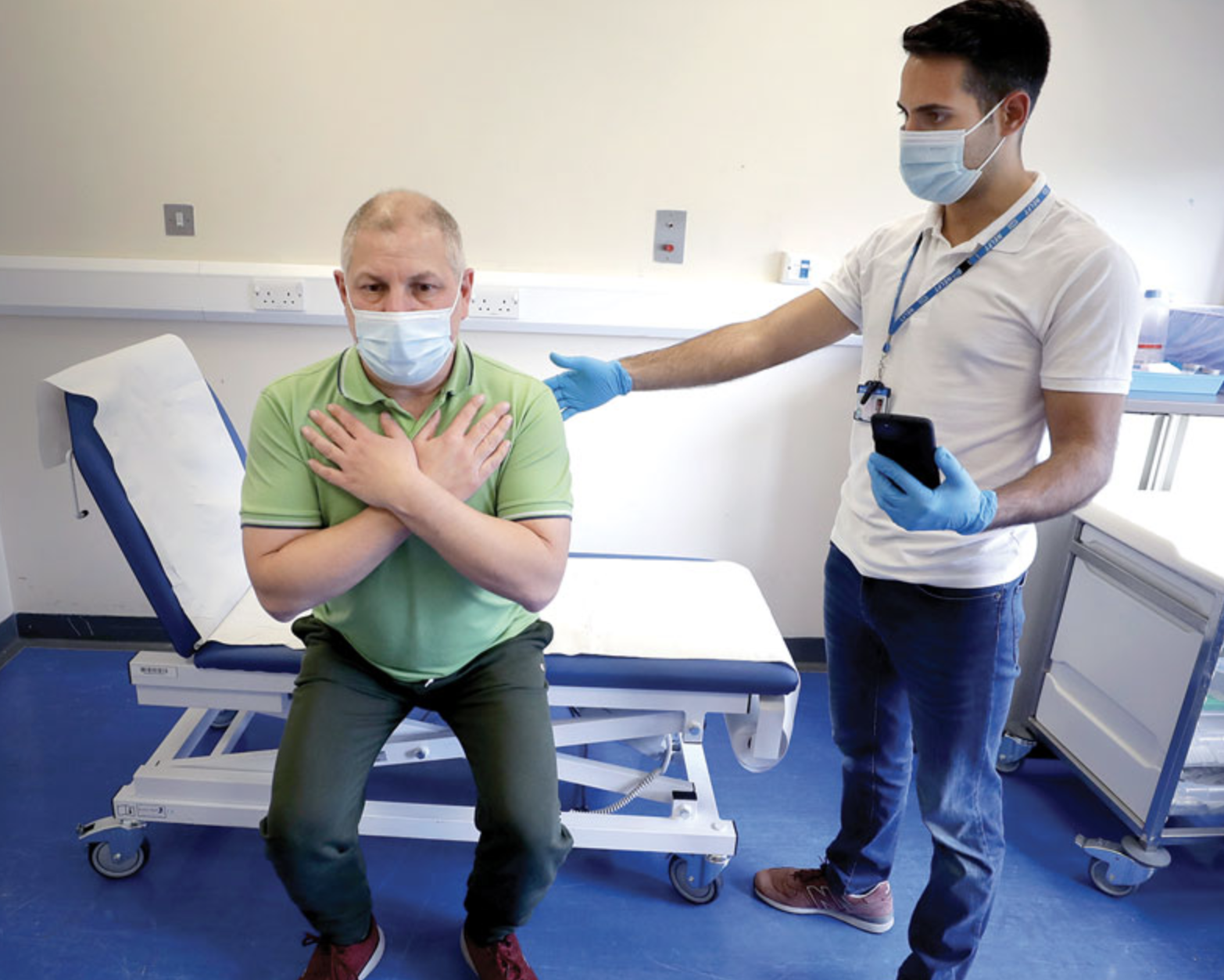Ever since the COVID-19 pandemic unfurled across the United Kingdom, hematologist John Willan has worried about the disease’s toll on his patients. In March 2020, Willan, who works at the University of Oxford and Wexham Park Hospital, began to track the hospital’s COVID-19 cases among people with leukemias, lymphomas, and other blood diseases. He counted not just the dozens of deaths, but also persistent and disabling symptoms collectively called Long Covid, which have plagued millions over the past 3 years.
These days, Willan is less anxious. After Omicron began spreading in late 2021, COVID-19 deaths became a rarity even among his frail and immunocompromised patients, he says. And infections now carry a lower threat of lingering complications. “These patients with Omicron, they’re much less likely to get Long Covid,” says Willan, whose patients are overwhelmingly vaccinated. Earlier this month, he reported in the British Journal of Haematology that his patients’ risk of Long Covid symptoms 3 months after infection had dropped from 46% with the original coronavirus strain and another called Alpha, to 35% with the Delta variant, to 14% with Omicron.
“My patients were so terrified … when COVID came out,” and rightfully so, Willan says. Although the number with protracted symptoms is still higher than he’d like, “I want to try and get a message to those people to say, ‘This is the actual risk to you now.’”
The trend appears in both vulnerable and healthy people. A group in the United Kingdom, Spain, and Italy reported this month in The Lancet Oncology that the risk of Long Covid among cancer patients fell from about 17% in 2021 to 6% more recently, as cases shifted to Omicron. Another just-published study of healthy Swiss hospital workers describes a similar pattern.
“The risk of Long Covid is not comparable between these variants,” says Philipp Kohler, an infectious disease specialist at St. Gallen Cantonal Hospital, who co-led the Swiss study. Vaccination, Omicron’s tendency to cause milder disease, and its distinct biology may all play a role, though the degree to which different factors blunt risk is a mystery.
Claire Steves, a geriatrician and epidemiologist at King’s College London, was the first to rigorously compare Long Covid rates after Omicron versus after Delta, which struck in mid-2021. She drew on data from the U.K. COVID Symptom Study, in which tens of thousands type information into an app. Data from 97,000 vaccinated people revealed a 4.5% risk of symptoms persisting 4 weeks after an Omicron infection versus 10.8% following a Delta infection, the group reported in The Lancet in June 2022.
The trend appears in both vulnerable and healthy people. A group in the United Kingdom, Spain, and Italy reported this month in The Lancet Oncology that the risk of Long Covid among cancer patients fell from about 17% in 2021 to 6% more recently, as cases shifted to Omicron. Another just-published study of healthy Swiss hospital workers describes a similar pattern.
“The risk of Long Covid is not comparable between these variants,” says Philipp Kohler, an infectious disease specialist at St. Gallen Cantonal Hospital, who co-led the Swiss study. Vaccination, Omicron’s tendency to cause milder disease, and its distinct biology may all play a role, though the degree to which different factors blunt risk is a mystery.
Claire Steves, a geriatrician and epidemiologist at King’s College London, was the first to rigorously compare Long Covid rates after Omicron versus after Delta, which struck in mid-2021. She drew on data from the U.K. COVID Symptom Study, in which tens of thousands type information into an app. Data from 97,000 vaccinated people revealed a 4.5% risk of symptoms persisting 4 weeks after an Omicron infection versus 10.8% following a Delta infection, the group reported in The Lancet in June 2022.
